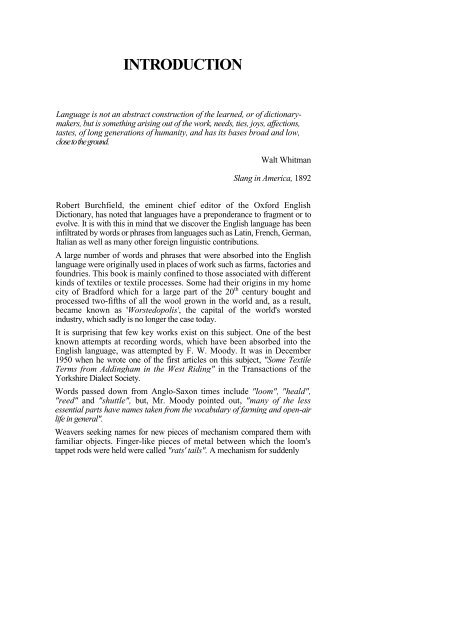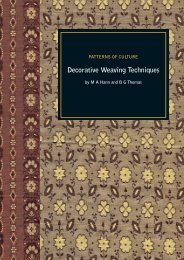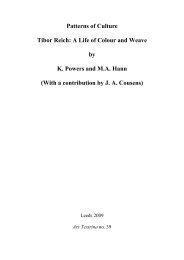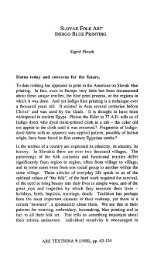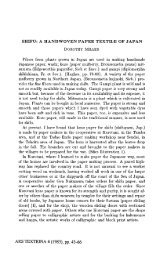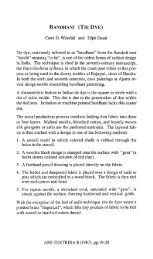On Tenterhooks
On Tenterhooks
On Tenterhooks
You also want an ePaper? Increase the reach of your titles
YUMPU automatically turns print PDFs into web optimized ePapers that Google loves.
INTRODUCTION<br />
Language is not an abstract construction of the learned, or of dictionarymakers,<br />
but is something arising out of the work, needs, ties, joys, affections,<br />
tastes, of long generations of humanity, and has its bases broad and low,<br />
closetotheground.<br />
Walt Whitman<br />
Slang in America, 1892<br />
Robert Burchfield, the eminent chief editor of the Oxford English<br />
Dictionary, has noted that languages have a preponderance to fragment or to<br />
evolve. It is with this in mind that we discover the English language has been<br />
infiltrated by words or phrases from languages such as Latin, French, German,<br />
Italian as well as many other foreign linguistic contributions.<br />
A large number of words and phrases that were absorbed into the English<br />
language were originally used in places of work such as farms, factories and<br />
foundries. This book is mainly confined to those associated with different<br />
kinds of textiles or textile processes. Some had their origins in my home<br />
city of Bradford which for a large part of the 20 th century bought and<br />
processed two-fifths of all the wool grown in the world and, as a result,<br />
became known as 'Worstedopolis', the capital of the world's worsted<br />
industry, which sadly is no longer the case today.<br />
It is surprising that few key works exist on this subject. <strong>On</strong>e of the best<br />
known attempts at recording words, which have been absorbed into the<br />
English language, was attempted by F. W. Moody. It was in December<br />
1950 when he wrote one of the first articles on this subject, "Some Textile<br />
Terms from Addingham in the West Riding" in the Transactions of the<br />
Yorkshire Dialect Society.<br />
Words passed down from Anglo-Saxon times include "loom", "heald",<br />
"reed" and "shuttle", but, Mr. Moody pointed out, "many of the less<br />
essential parts have names taken from the vocabulary of farming and open-air<br />
life in general".<br />
Weavers seeking names for new pieces of mechanism compared them with<br />
familiar objects. Finger-like pieces of metal between which the loom's<br />
tappet rods were held were called "rats' tails". A mechanism for suddenly


